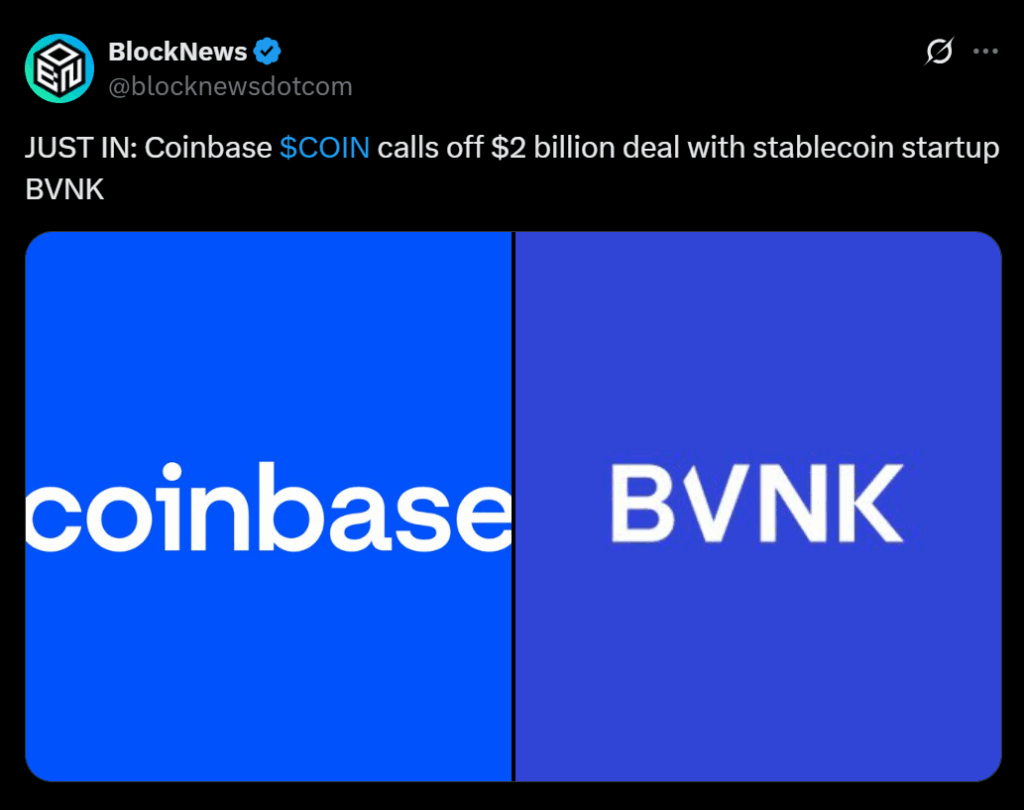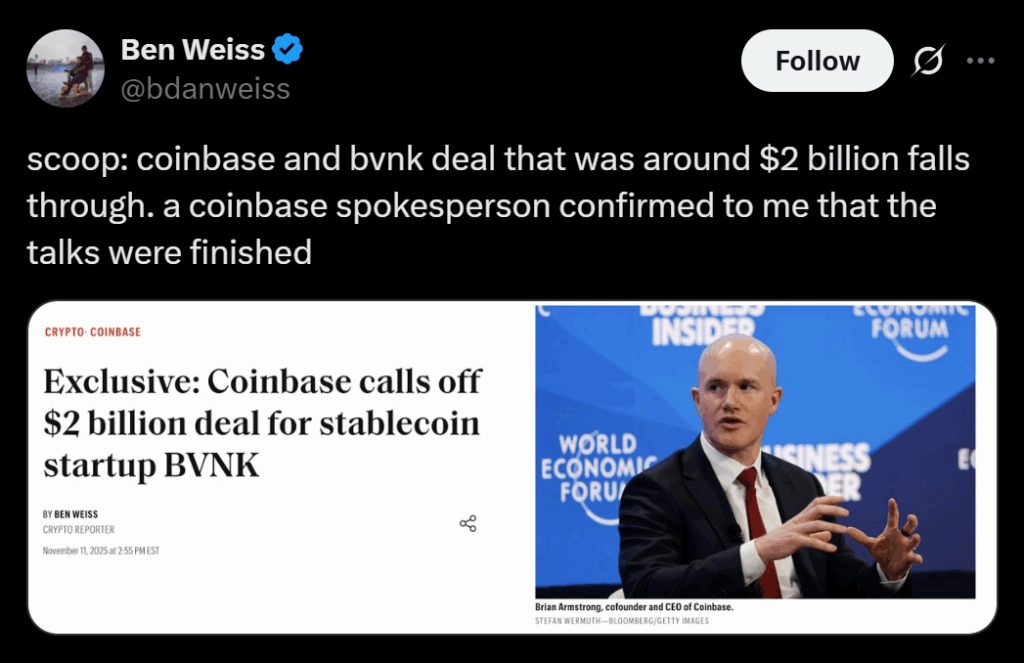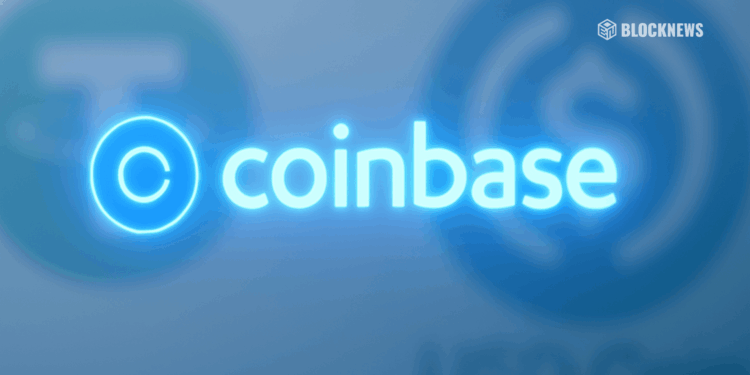- Coinbase and BVNK have mutually agreed to halt acquisition talks, ending a proposed ~$2 billion deal that had reached an exclusivity stage.
- The move comes amid an ongoing wave of high-value stablecoin infrastructure deals, including Stripe’s $1.1B Bridge buyout and Mastercard’s reported talks to acquire Zerohash.
- Despite walking away from BVNK, Coinbase remains in expansion mode, highlighted by its $2.9B Deribit acquisition and its longstanding strategic ties to USDC via Circle.
Coinbase has quietly pulled the plug on what could’ve been one of the biggest stablecoin infrastructure deals to date. The exchange has abandoned plans to acquire UK-based BVNK, ending advanced discussions over a potential $2 billion takeover.
The news first surfaced via Fortune and was later confirmed by Coinbase in a statement to The Block:
“After discussing a potential acquisition of BVNK, both parties mutually agreed to not move forward.”
Just a few weeks ago, both Coinbase and Mastercard were exploring bids for BVNK, with Coinbase reportedly entering into an exclusivity agreement in early October. That suggested the deal was close enough that other suitors were being kept at arm’s length. Somewhere between then and now, the calculus changed, and both sides decided to step back rather than push it over the line.

For BVNK, it means staying independent for now. For Coinbase, it’s a rare “no” in the middle of a very active acquisition streak.
A Pause in the Stablecoin Infrastructure Land Grab
The shelved BVNK deal doesn’t exist in a vacuum. It was part of a wider land grab around stablecoin infrastructure, as payments giants and crypto natives race to control the rails that move tokenized dollars and other fiat-backed assets.
In 2024, Stripe bought infrastructure firm Bridge for around $1.1 billion, bolstering its position in crypto-enabled payments and settlement. Now, Mastercard is reportedly in talks to acquire Zerohash in a deal valued between $1.5 billion and $2 billion. None of these companies are buying “just another token” – they’re buying the plumbing that lets banks, fintechs, and platforms plug into stablecoins at scale.
Coinbase stepping away from BVNK doesn’t mean it’s losing interest in that space. If anything, it suggests the company is being more selective about which pieces it brings in-house versus which it partners with. BVNK’s stack clearly fit the “infrastructure” theme, but price, regulatory complexity, overlap with existing capabilities, or strategic timing could all have been reasons to walk away.
At the same time, the message is that traditional and crypto-native players are still very serious about stablecoins. Even as this specific deal dies, the overall M&A trend around stablecoin infrastructure is very much alive.

Coinbase Is Still in Expansion Mode — Just Not at Any Cost
It’s also important to see this move in the context of Coinbase’s broader strategy. Under President Trump’s second term, the company has been on a full-on M&A run, using its balance sheet to snap up assets and infrastructure across different corners of the crypto market.
In August, Coinbase acquired derivatives trading platform Deribit in a $2.9 billion deal, instantly boosting its footprint in global futures and options. That followed other moves designed to deepen liquidity, widen product lines, and secure infrastructure its competitors can’t easily replicate.
Coinbase also sits close to the heart of the USDC ecosystem. It was once half of the now-defunct CENTRE Consortium, which launched USDC in partnership with Circle, and it still maintains a tight relationship with Circle as USDC’s circulation grows across chains and platforms. That existing stablecoin footprint may have made a BVNK-style purchase less essential, or at least harder to justify at the rumored price tag.
So the takeaway isn’t that Coinbase is cooling on stablecoins. It’s that the company is willing to walk away from big numbers if the fit isn’t perfect, even while it continues to buy aggressively elsewhere. In a market where everyone is trying to own the rails for tokenized dollars and digital payments, that kind of discipline might matter more than closing every flashy deal.














